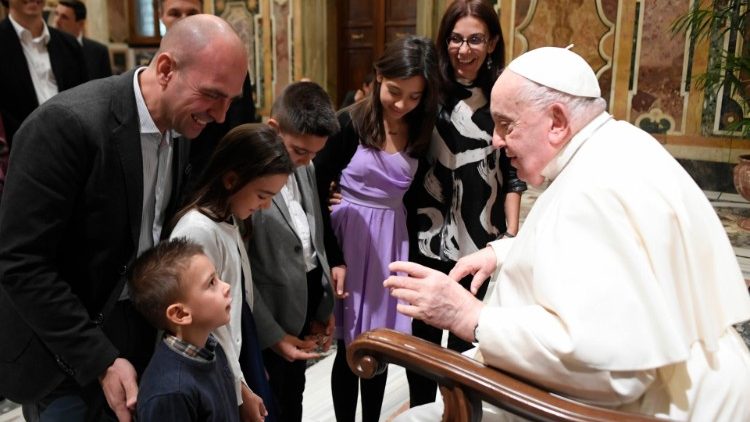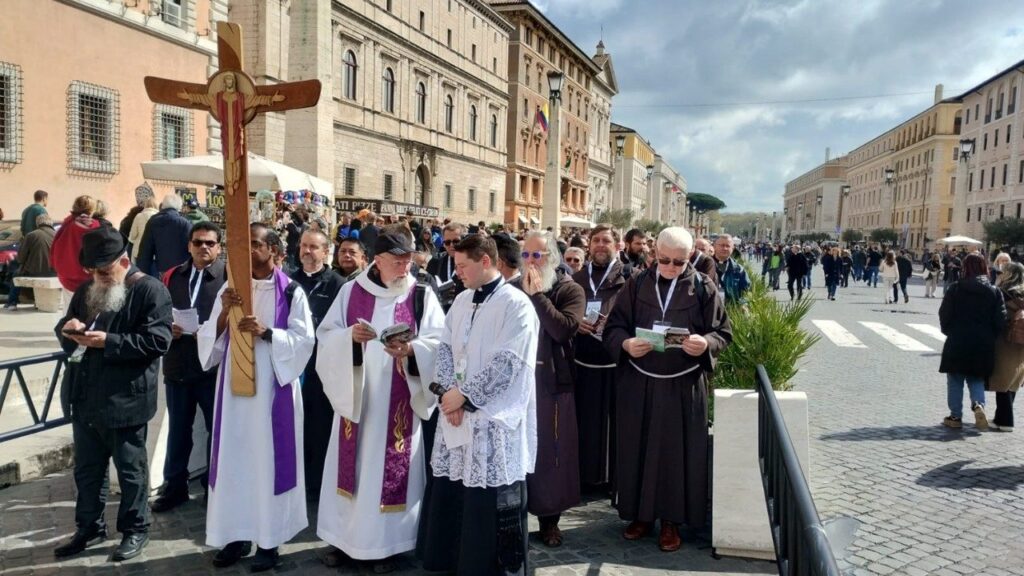“A Church with open doors to women and wounded families”
Pope Francis highlights the importance of an inclusive and synodal approach to supporting families, especially those in difficulty, and defends the value of love as a healing force in family life

In a meeting held at the Vatican with the Academic Community of the Pontifical John Paul II Theological Institute for the Sciences of Marriage and Family, Pope Francis stressed the importance of a synodal approach to addressing the challenges faced by families. He spoke of the need to live the fruitfulness and fraternity of the Gospel, stressing that the Church has always cared for marriage and the family, fundamental aspects of people’s lives.
The Pope recalled that, although in many countries fundamental human rights, such as dignity and freedom, are not always respected, especially in the case of women, the Church constantly defends the value of all human beings, without distinction of gender. Women, who were disciples of Jesus, are not excluded from the plan of salvation, since in Christ there is no discrimination between men and women.
 Francis continued to reflect on the sacrament of marriage, comparing it to the new wine served at the wedding at Cana. He stressed that the family must be an open and welcoming place, following the example of the first Christian communities, where there were no economic or social barriers to living the Gospel. “Entering the Church is always inaugurating a new fraternity,” he explained, a fraternity that embraces everyone, even those who struggle in faith, offering accompaniment and comfort in their pain.
Francis continued to reflect on the sacrament of marriage, comparing it to the new wine served at the wedding at Cana. He stressed that the family must be an open and welcoming place, following the example of the first Christian communities, where there were no economic or social barriers to living the Gospel. “Entering the Church is always inaugurating a new fraternity,” he explained, a fraternity that embraces everyone, even those who struggle in faith, offering accompaniment and comfort in their pain.
The Pope also addressed the pastoral care of accompaniment, emphasizing that there is no exclusion in the Church. Charity is the key to maintaining unity in families, even those that go through moments of crisis or wounds. In this sense, he reiterated that the ability to love is what strengthens the family, because even if it is wounded, it can always grow from love.
Through dialogue and cooperation between different cultures and societies, the Pope expressed the need to overcome cultural distances that affect the vision of marriage and family. Synodality, which involves listening to both the Word of God and the voices of others, is presented as a way to address the great challenges of today.
In his message, Francis urged the Academic Community of the John Paul II Institute to continue helping families to be “living stones of the Church,” witnesses of fidelity, service, openness to life and welcome. In doing so, families become a sign of fruitfulness and fraternity, always following the example of Christ.
Related

Pope Francis and Hope: Reflection on Jesus’ Encounter with Zacchaeus
Exaudi Staff
02 April, 2025
2 min

Technology with a Human Face: Pope Francis’ Call for Ethical and Caring Use
Exaudi Staff
01 April, 2025
1 min

Pope Francis Continues Optimistic Recovery and Maintains Work Pace
Exaudi Staff
01 April, 2025
2 min

The Pope to the Missionaries of Mercy: God became man to reveal to the world that he never abandons us!
Exaudi Staff
30 March, 2025
2 min
 (EN)
(EN)
 (ES)
(ES)
 (IT)
(IT)

